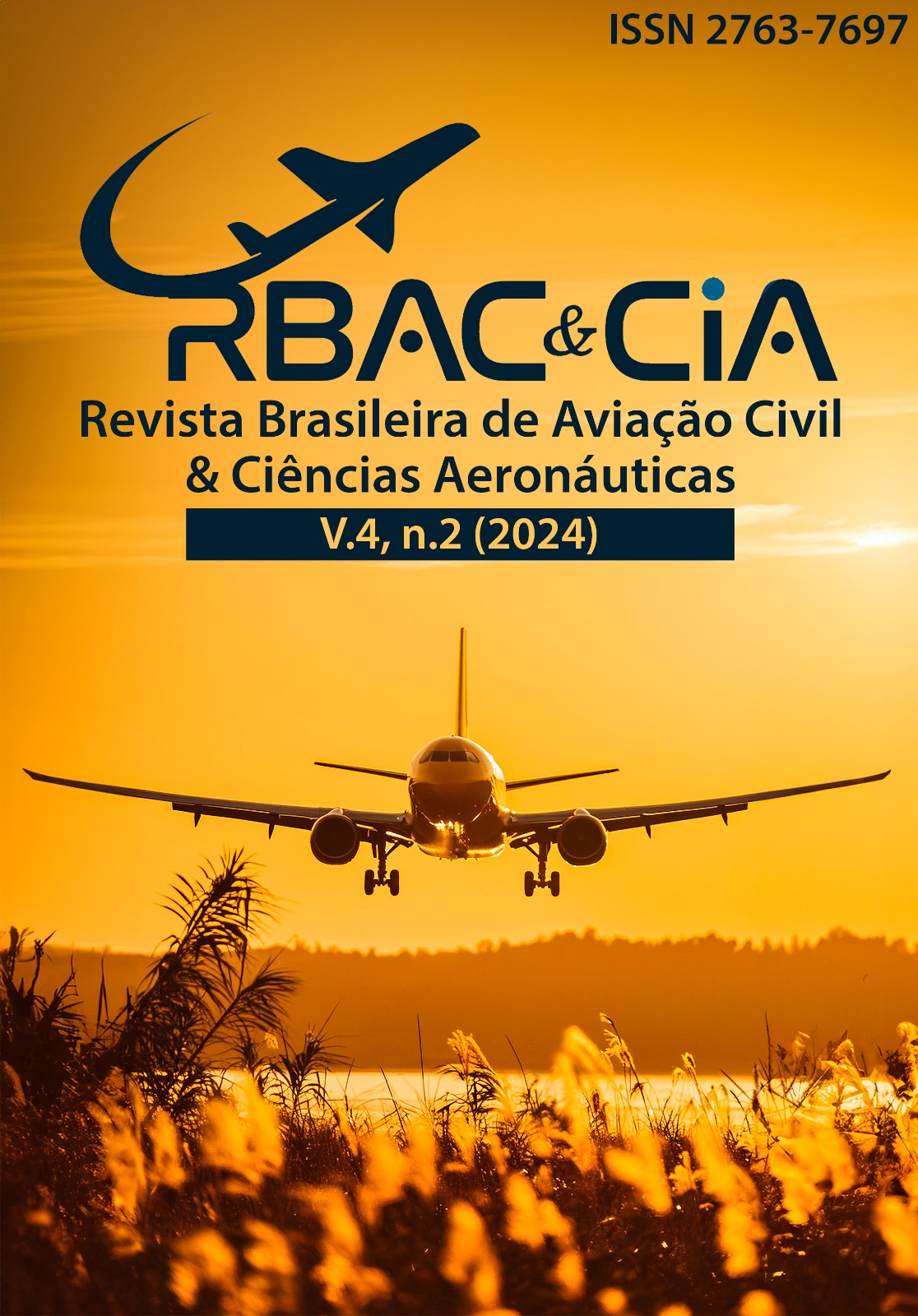GESTÃO ENERGÉTICA SUSTENTÁVEL: NOVOS COMBUSTÍVEIS PARA A AVIAÇÃO E ESTRUTURAS DE SUPORTE SUSTAINABLE ENERGY MANAGEMENT: NEW FUELS FOR AVIATION AND SUPPORT STRUCTURE
Conteúdo do artigo principal
Resumo
A operação da aviação civil atualmente ocorre utilizando combustíveis fósseis. Porém, esses combustíveis fósseis provêm de uma fonte esgotável, o petróleo. Logo, existe a necessidade de criar um substituto viável economicamente, sustentável, e que diminua os impactos ambientais causados pela utilização dos atuais tipos de combustíveis usados na aviação. Este trabalho teve como principal objetivo, investigar o que foi feito na aviação referente a preparação das estruturas aeroportuárias para a vinda de novos combustíveis. Verificou como será feito o gerenciamento dessas operações e dos seus insumos. Investigou e descreveu os principais combustíveis que estão em estudo para suprir a necessidade dessa consumidora de combustíveis fósseis que é a aviação civil. Investigou como os gestores aeroportuários estão se preparando para essa nova tendência. O trabalho apresentou uma breve investigação do uso de combustíveis fosseis na história e o que a aviação tem como parcela de poluição com o uso desses combustíveis. Para obter os resultados, foi utilizado uma pesquisa qualitativa, descritiva, bibliográfica e documental, a fim de se obter os resultados sobre as questões levantadas e os objetivos gerais e específicos. Como resultado, pretendeu-se responder as perguntas de pesquisa que este trabalho apresentou, juntamente com a meta de atingir os objetivos gerais e específicos estabelecidos. A conclusão obtida com a pesquisa atendeu ao objetivo geral e aos objetivos específicos propostos nesse trabalho, no qual apresentou os combustíveis em estudo para serem os substitutos dos combustíveis fósseis, e colocando o SAF como tendência a ser o substituto ideal. Apresentou as possíveis medidas que terão que ser tomadas nos sítios aeroportuários caso o SAF se torne realidade, e como as empresas fornecedoras estão se preparando para a vinda desse novo combustível.
ABSTRACT
Civil aviation currently operates using fossil fuels. However, these fossil fuels come from an exhaustible source, oil. Therefore, there is a need to create an economically viable, sustainable substitute that reduces the environmental impacts caused by the use of current types of fuels used in aviation. This work's main objective was to investigate what was done in aviation regarding the preparation of airport structures for the arrival of new fuels. Verified how these operations and their inputs will be managed. Investigated and described the main fuels that are being studied to meet the need for this consumer of fossil fuels that is civil aviation. Investigated how airport managers are preparing for this new trend. The work presented a brief investigation of the use of fossil fuels in history and the share of pollution that aviation has with the use of these fuels. To obtain the results, qualitative, descriptive, bibliographic and documentary research was used, in order to obtain results on the questions raised and the general and specific objectives. As a result, the aim was to answer the research questions that this work presented, together with the goal of achieving the general and specific objectives established. The conclusion obtained from the research met the general objective and the specific objectives proposed in this work, in which the fuels under study were presented to be substitutes for fossil fuels, and placing SAF as a tendency to be the ideal substitute. He presented the possible measures that will have to be taken at airport sites if SAF becomes a reality, and how supplier companies are preparing for the arrival of this new fuel.
Downloads
Detalhes do artigo

Este trabalho está licenciado sob uma licença Creative Commons Attribution 4.0 International License.
